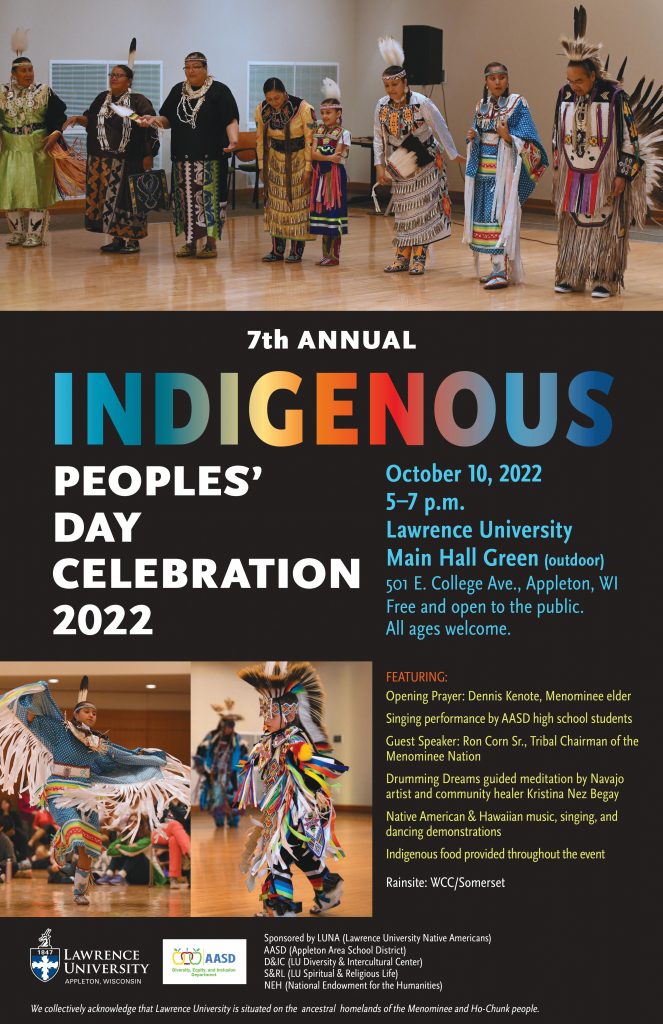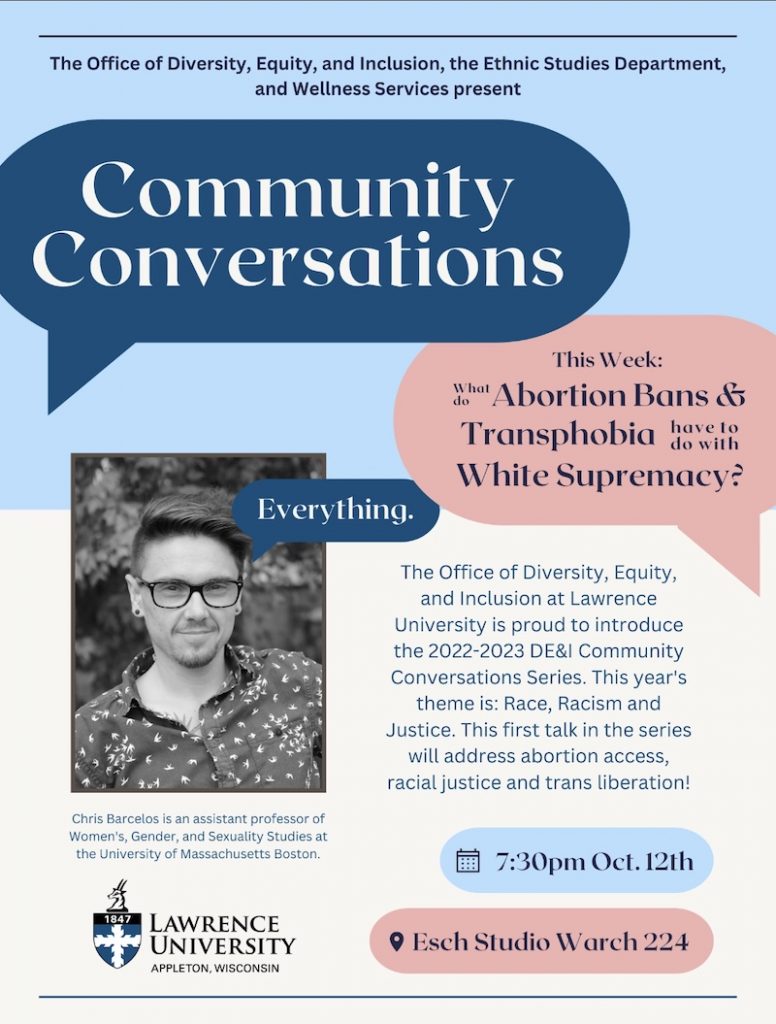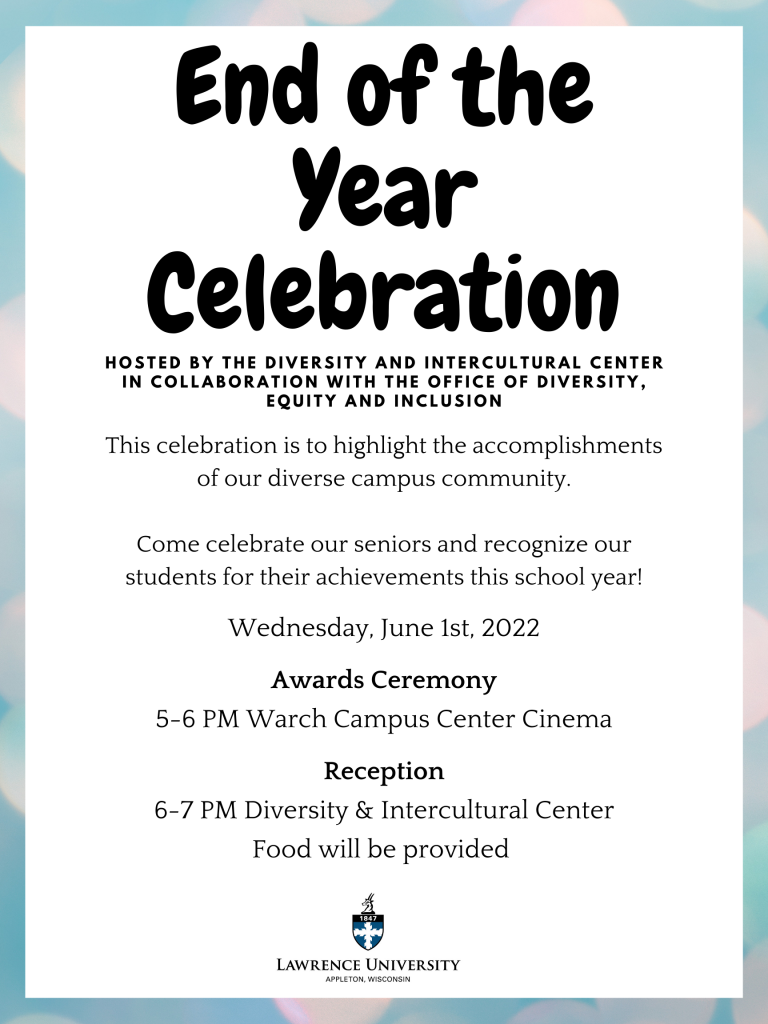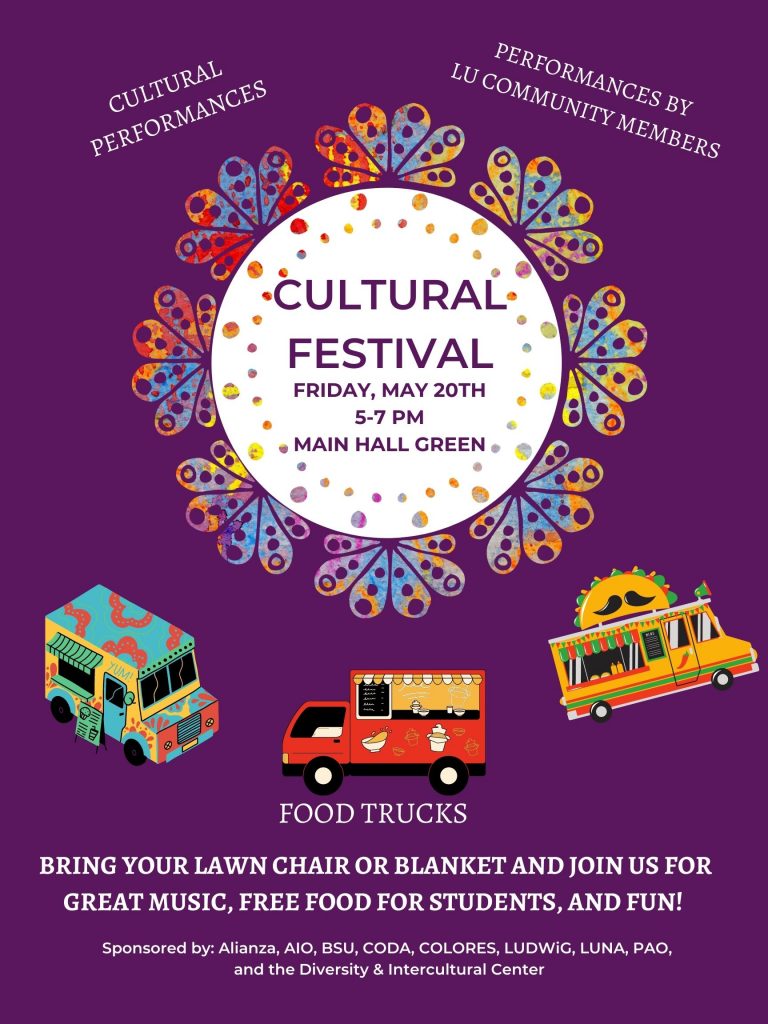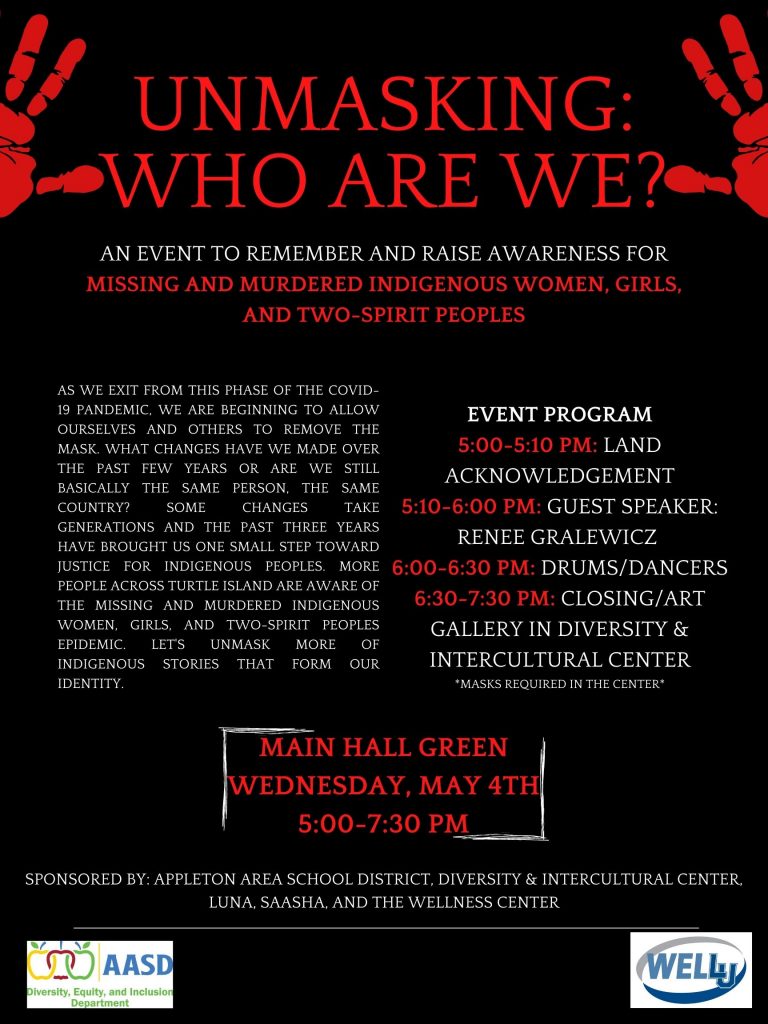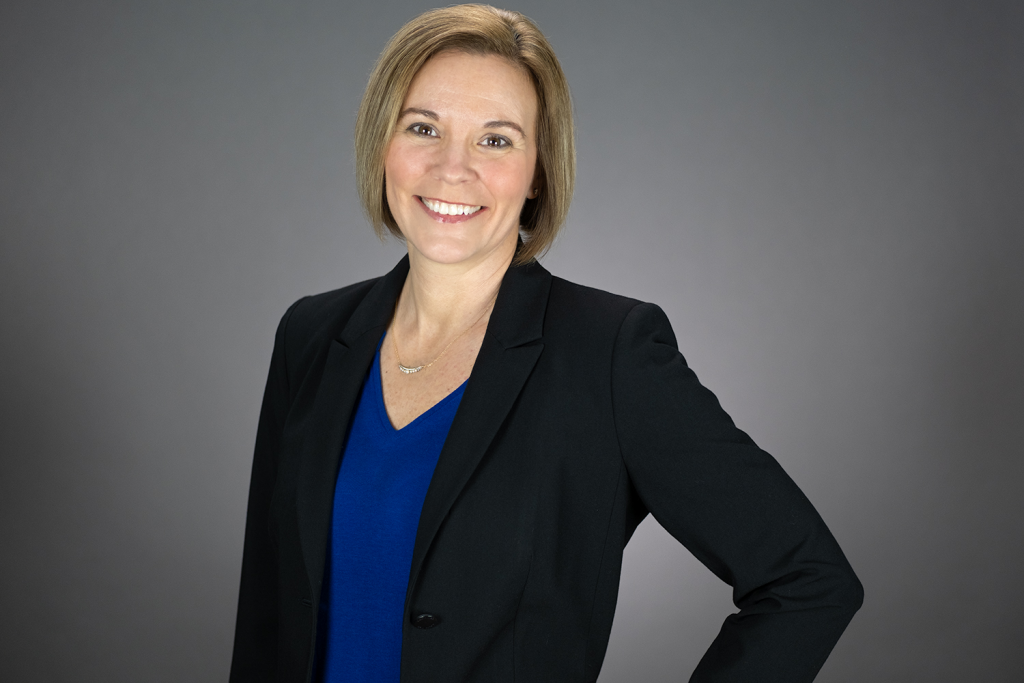7th Annual Indigenous Peoples’ Day Celebration 2022
Main Hall Green October 10, 2022 5-7 p.m.
Free and open to the public. All ages welcome.
Many cities and states across the United States have replaced the Columbus Day holiday with the official recognition of Indigenous People’s Day. Lawrence University welcomes the entire Fox Cities community to join us in celebrating and learning about the many contributions of Indigenous people globally through song, dance, food, and local Native American guest speakers/leaders.
Featuring:
-Opening Prayer: Dennis Kenote, Menominee elder
-Singing performance by Appleton Area School District high school students
-Guest Speaker: Ron Corn Sr, Tribal Chairman of the Menominee Nation
-Drumming Dreams guided meditation by Navajo artist and community healer Kristina Nez Begay
-Native American & Hawaiian music, singing, and dancing demonstrations
-Indigenous food provided throughout the event
Rain site: WCC/Somerset
Sponsored by LUNA (Lawrence University Native Americans) AASD (Appleton Area School District) D&IC (LU Diversity & Intercultural Center) S&RL (LU Spiritual & Religious Life), NEH (National Endowment for the Humanities), and ODEI (Office of Diversity, Equity and Inclusion).
We collectively acknowledge that Lawrence University is situated on the ancestral homelands of the Menominee and Ho-Chunk people.
